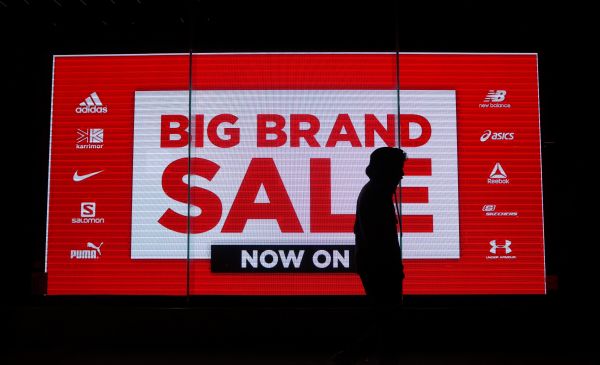Branding Strategy Insider helps marketing oriented leaders and professionals like you build strong brands. BSI readers know, we regularly answer questions from marketers everywhere. Today we hear from Beth a U.S. based Senior Marketing Executive who has this question about evolving a heritage poultry brand.
We are a well-established heritage brand in the poultry industry looking to evolve our brand characters/spokespeople and their storylines. Specifically we need to decide who should tell our story, the character attributes that are needed to be successful in staying contemporary and relevant with new consumers, who are less aware of our story, while continuing the tradition for our loyal followers. What insight can you share in regards to evolving our heritage brand?
Thanks for your question Beth. After taking a closer look at your brand (omitted here for confidentiality) you’ve certainly thought long and hard about your brand and done a lot of work to successfully pass the brand through several generations. My immediate sense is that you could evolve the brand to be more socially aware and transparent, focused on responsible farming, lifestyle choices around wholesome food and what it means to be a family today and into the future. Also it would be interesting to look at how other heritage brands, like Levis and Jim Beam, are shifting their message to take in younger audiences while retaining their older core buyer.
In addition to the insights a look at those brands could yield, make sure you have:
- Stakeholder alignment on who you want to be and where you want your story to go, outlining key milestones along the way.
- An understanding of what makes your brand and its assets distinct from the vantage point of your spokesperson heritage and story that’s been built over time.
- A 360 degree mapping of your brand characters/spokespeople to better understand their unique and overlapping personality, traits, and equities.
- An understanding of the unique roles, personalities, traits that your spokespeople should own.
- An understanding of the context in which meaning is assigned to brands today.
- An understanding of the role of family in the narrative.
Other important considerations come into play for evolving and maintaining a competitive heritage brand in the poultry industry.
Know That Character Alone Is Not Enough To Drive A Heritage Brand Forward
Well-branded stories provide consumers with an anchor point that differentiates the product. The biggest challenge for established brands is to continue to evolve their story in ways that make sense to customers and their changing worlds, without losing sight of what people most treasure about the brand. Staying in touch with consumers will always be key but the conversation going forward, as you know, will need to evolve.
Know That Heritage Is More Than Just History
- In the U.S., heritage links to brand affinity. It speaks to the track record of the delivery of the promise to stakeholders.
- In a world of increasing choice, consumers are seeking out brands with genuine history and authenticity. Heritage brands have powerful sincerity characteristics – they are honest, authentic, wholesome, trustworthy, friendly and familiar, caring and unassuming. Your advantage lies in how you have delivered this so well over time.
Know That Change And Heritage Are Not Mutually Exclusive
Your relationships with customers have brought the brand to this point and have been instrumental to the brand’s success. Continuing your strong connections with consumers going forward is vital – and the changeover to the next generation is a critically important moment in which to do that.
Know That Consumers Are Changing
- Younger consumers have a deep mistrust of institutions and big brands.
- They want transparency and honesty – to the point where they welcome brands telling the truth and being straight-up about where they will make changes. The days of marketing as persuasion have given way to an era of marketing as a prompt for relationships.
- These consumers want their relationships with brands to be fun – they want brands to be playful, enticing and to fit with who they are and their needs.
- They are fickle – because they are so brand-savvy.
- They want to see brands taking onboard the things that interest and concern them. They want brands to fix the world they live in.
- They have a deep sense of community and sharing – of which food is an integral part.
Know That The Industry Is Changing
The poultry industry itself is on the verge of major changes driven by demands that chickens are treated more humanely – grown more slowly, treated better, fed better. Focus on building a reputation for improving the industry and the welfare of animals. This can be a key source of brand equity for you, and one where you can extract value. As a well-established brand you have played a major role in driving up demand for chicken consumption. You continue to provide great products to the market – and it’s important to position yourselves as a company that does that, and that consumers can expect an ongoing relationship with you because of that.
Know That Family Is Core To Food Brands
Family embodies values, trust, honesty and the passing on of qualities that consumers see as timeless. It makes sense that you would continue to espouse and demonstrate family values.
Know That Successful Brands Always Need New Conversation Points
While family is central to the brand and remains part and parcel of why you are successful, the notion of family itself continues to change, and these could prompt new storylines:
- People eat, connect and stay in touch in different ways today.
- Family is how people come together. There are different definitions of what constitutes family than there used to be.
- There is no “official” family story anymore. Just as families evolve, so the stories of families can potentially come from a range of sources.
Know The Key Concerns For Food Consumers Today
The things that consumers want to hear about are also changing:
- Food safety – consumers want quality products they can trust at prices that represent fair value.
- Ethical concerns – consumers want to see that the products they are eating have been raised in ways that they feel comfortable with.
- Convenience – consumers want to feel that the products they are buying are easy to use and save them time.
- Personalization – talk to consumers about the things in their world, not the things you want to market.
- Corporatization of the food chain – in 2013, Oxfam reported that just 10 companies control the world’s food. Consumers want to deal with companies that have the capacity to deliver reliably but that they can also relate to.
Know That Story Is An Expression Of Strategy, Not The Other Way Around
While you have asked to look at where your story will go, the critical elements to retain and how the various personalities align and overlap, your key concern is making sure that the brand remains authentic, connective, innovative and competitive.
Know The Next Generation Of Selling Points
Few companies can just sell products anymore because consumers today make purchasing decisions across a broader range of references. For that reason, my view is that you will need to focus on the next generation of content as much the new generation of family spokesperson/spokespeople.
Send Powerful And Reassuring Signals
Family continues to underpin your brand and is integral to its continued success. But there are potentially new conversations to start, and old conversations to evolve and they will be a key focus to be successful. To maintain the success of your heritage brand, the proof points will need to be flexible, diverse, social media friendly – and so will the person/people who deliver(s) them.
We hope this is helpful Beth.
Do you have a branding question? Just Ask The Blake Project
The Blake Project Can Help: Please email us for more about how we help heritage brands create bigger futures.
Branding Strategy Insider is a service of The Blake Project: A strategic brand consultancy specializing in Brand Research, Brand Strategy, Brand Licensing and Brand Education




